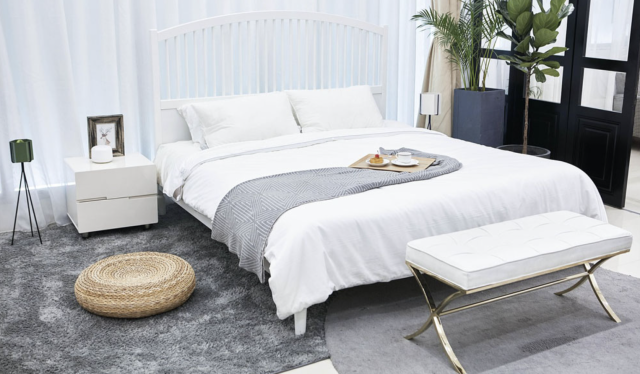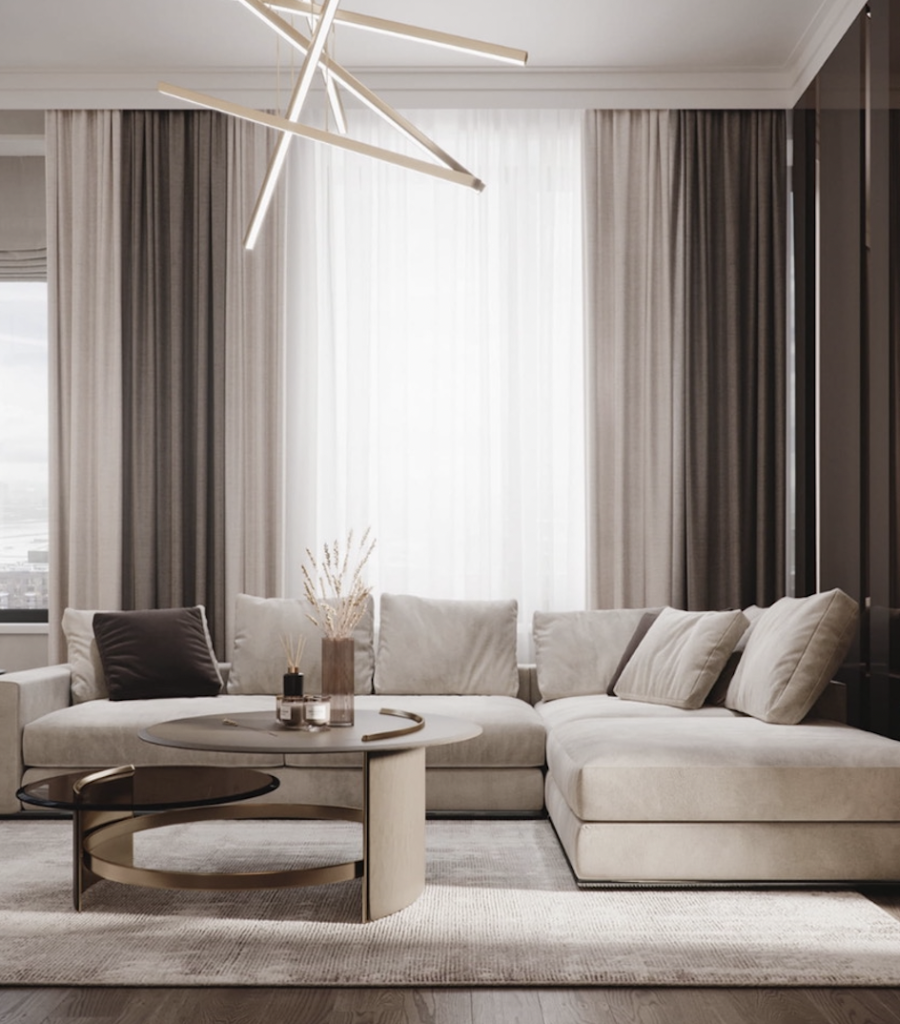How well you do in waking hours depends a lot on how well you sleep at night. Good sleep gives the invaluable gift of rest. As we all know, a well-rested body and a well-rested mind improve memory, cognition, and productivity.
What happens if you don’t get proper sleep? Well, if it happens regularly, this is called insomnia and it can lead to compromised physical and mental health, which in turn can adversely affect your life’s overall quality.
Good sleep is something we need night after night after night, year after year, all through our life. Naturally then, your bedroom – the place you sleep in – needs careful designing. A thoughtfully designed bedroom can actually improve your sleep quality tremendously.
If you are looking for tips to improve your bedroom for better sleep, here’s a list of useful guidelines and suggestions. From adding blackout custom drapes to inviting soothing fragrances into your space, make this your go-to list to design the ideal bedroom for restful slumber.
1. Invest in a comfortable bed
Contents
- 1. Invest in a comfortable bed
- 2. Get quality mattresses, pillows, and cotton bed linen
- 3. Take care of adequate ventilation and temperature control
- 4. Keep the bedroom color palette soothing to the eyes
- 5. Stop external light and sound from invading your bedroom
- 6. Keep the bedroom clutter-free
- 7. Keep a check on electronics
- 8. Introduce white noise into the bedroom
- 9. Add a soothing fragrance
- 10. Personalize your sleeping space
What you sleep on is vital to how you sleep on it. Get a bed that’s solidly built and is comfortably sized. You should not feel cramped on it. If a couple is sharing the bedroom, both people should get ample stretching room on the bed. Ideally, a king-size bed is better than a queen-sized one for a couple.
2. Get quality mattresses, pillows, and cotton bed linen
Once you have your bed, it is time to make it. Begin by choosing your mattress with care. A quality mattress that gives comfort as well as support pays for itself many times over. Your pillows too should be comfortable underneath the head. If you have chronic pain issues, go for more than one pillow after consulting with your healthcare provider. Lastly, the bed linen should feel clean and crisp. Snug or cool too, as per your climate.
3. Take care of adequate ventilation and temperature control
Stuffy rooms that are too cold or too hot are bad news for sleep. A well-ventilated room with a comfortable temperature level can ensure you sleep well and wake up refreshed. Experts recommend lowering the room temperature a few degrees at sleep time as cooler rooms support better sleep than warm temperatures. Blackout curtains have many benefits including lowering the room temperature by a few degrees, this is recommended by experts who suggest that colder rooms provide better sleep.
4. Keep the bedroom color palette soothing to the eyes
Sleep is a state of rest. To slip into this restful state, your senses need to feel soothed. Soft, gentle colors on bedroom walls evoke serenity and enable sleep. We recommend pale shades of grey, green, lavender, blue, beige, and ivory for bedroom walls. If using wallpaper, keep the prints muted. Also, use matte finish paint or wallpaper rather than the glossy kind as the latter reflects light and that can keep you awake.
5. Stop external light and sound from invading your bedroom
Light and sound are sleep’s enemies. To block light seeping in through windows, put up blackout curtains or custom roman shades. To reduce noise levels, use sound-absorbing furnishings like floor rugs, upholstered chairs, and wall tapestries. If your partner watches television or is active on the phone at night, ask them to use headphones and get a comfortable eye mask for themselves.
6. Keep the bedroom clutter-free
It is an accepted fact that clutter disturbs mental peace. If the mind isn’t at peace, it means poor sleep. Keep your bedroom free of clutter to enjoy a sounder sleep. Books inside closed bookcases, cosmetics inside the vanity, laundry folded and stored in wardrobes, shoes put back in the shoe rack – small decluttering habits will not only improve how your home looks, but will also enable better slumber.
7. Keep a check on electronics
Ideally, your bedroom should not have a television or portable gadgets like your laptop, tablet, or cellphone. Screens that give off light can interfere with sleep onset. If you can’t keep the screens out, we suggest placing the television behind cabinet doors, and other gadgets too switched off and stored out of sight as much as possible.
8. Introduce white noise into the bedroom
There’s the kind of noise that interferes with sleep. And then there’s also the white noise that supports sleep. White noise is technically defined as noise that contains all the frequencies across the spectrum of audible sound in equal measure. In simple parlance, consistent gentle background sounds like the whirring of a ceiling fan, humming of an air conditioner, and hissing on a radiator can be called white noises. There are special white noise machines also available in the market. Played overnight, these have been proven to improve sleep quality.
9. Add a soothing fragrance
Some fragrances such as vanilla, lavender, and chamomile are natural sleep inducers. Use a diffuser with genuine essential oils to infuse gentle fragrances into the bedroom to get deeper sleep.
10. Personalize your sleeping space
The prerequisite to good sleep is a feeling of being safe, and at home. If your bedroom is cozy and it feels like one’s own den or sanctuary, it gives the brain a sense of security to let sleep take over. You can create your safe sleeping zone by personalizing your bedroom. The things that make you feel at home – family photographs, childhood mementos, a favorite chair in the corner, or a favorite artwork – include some of these in your bedroom. Some, not too many to keep away the cluttered feeling.
Give your bedroom a soothing uplift following these tips and see how much your sleep improves.



